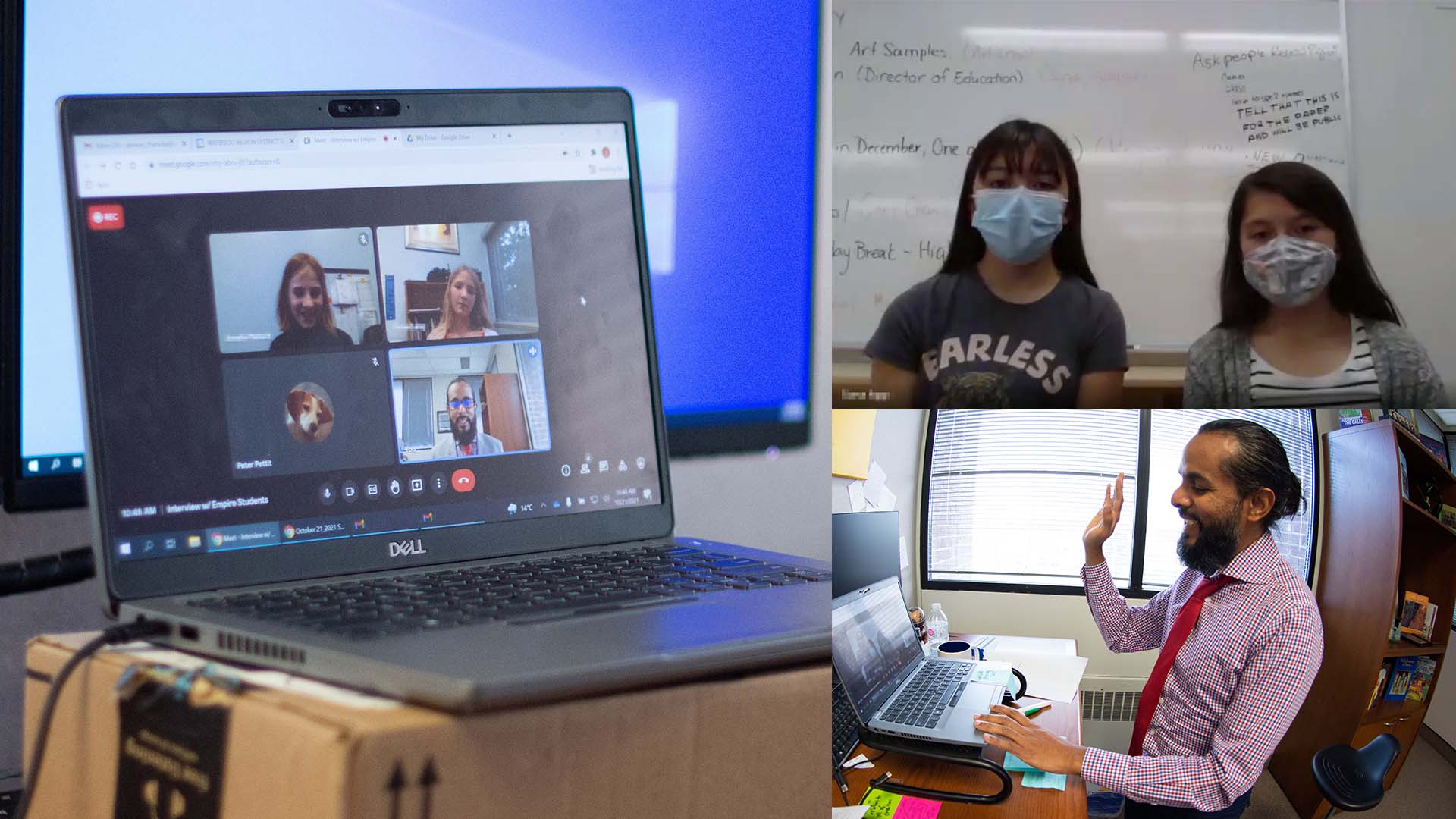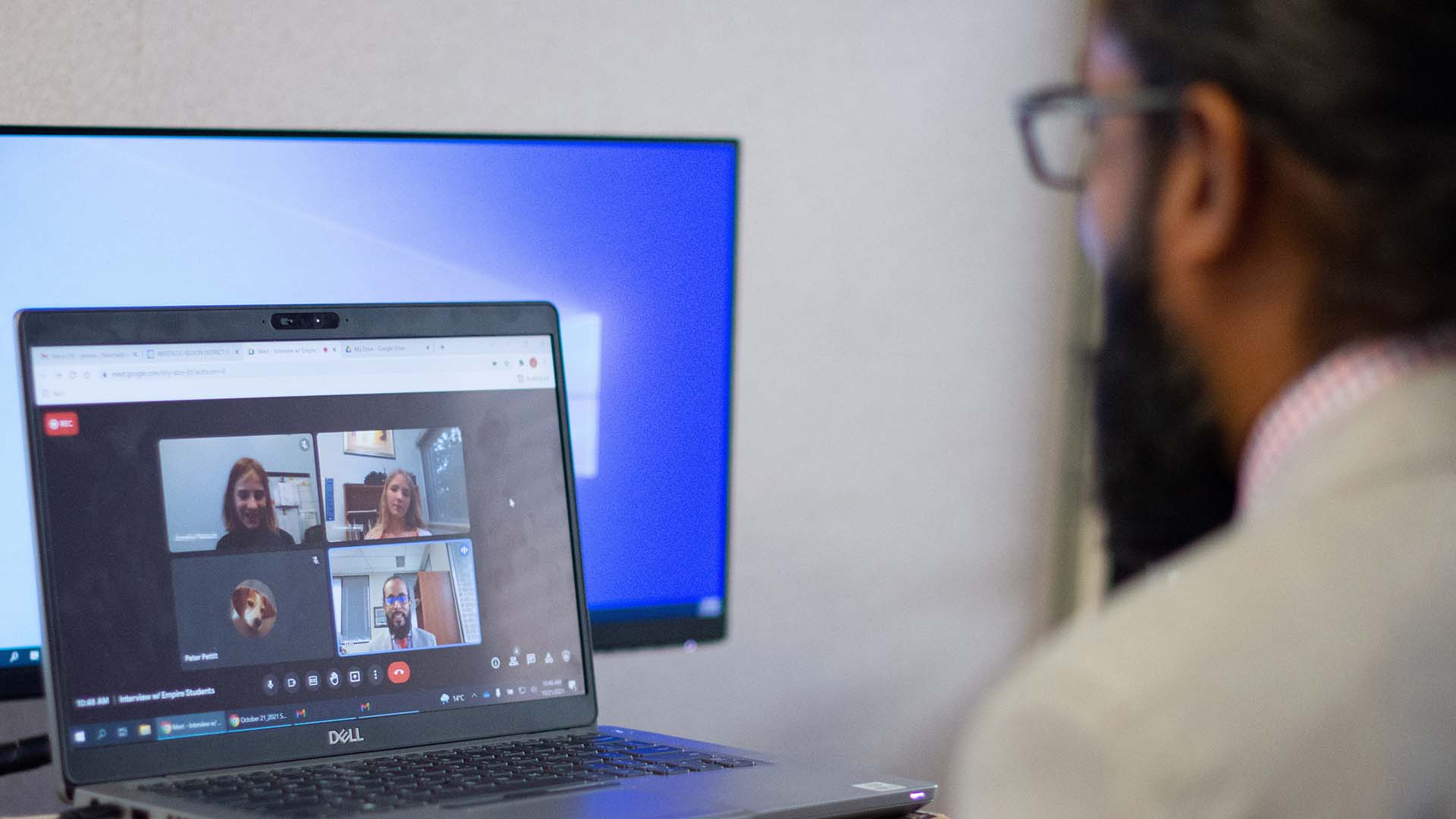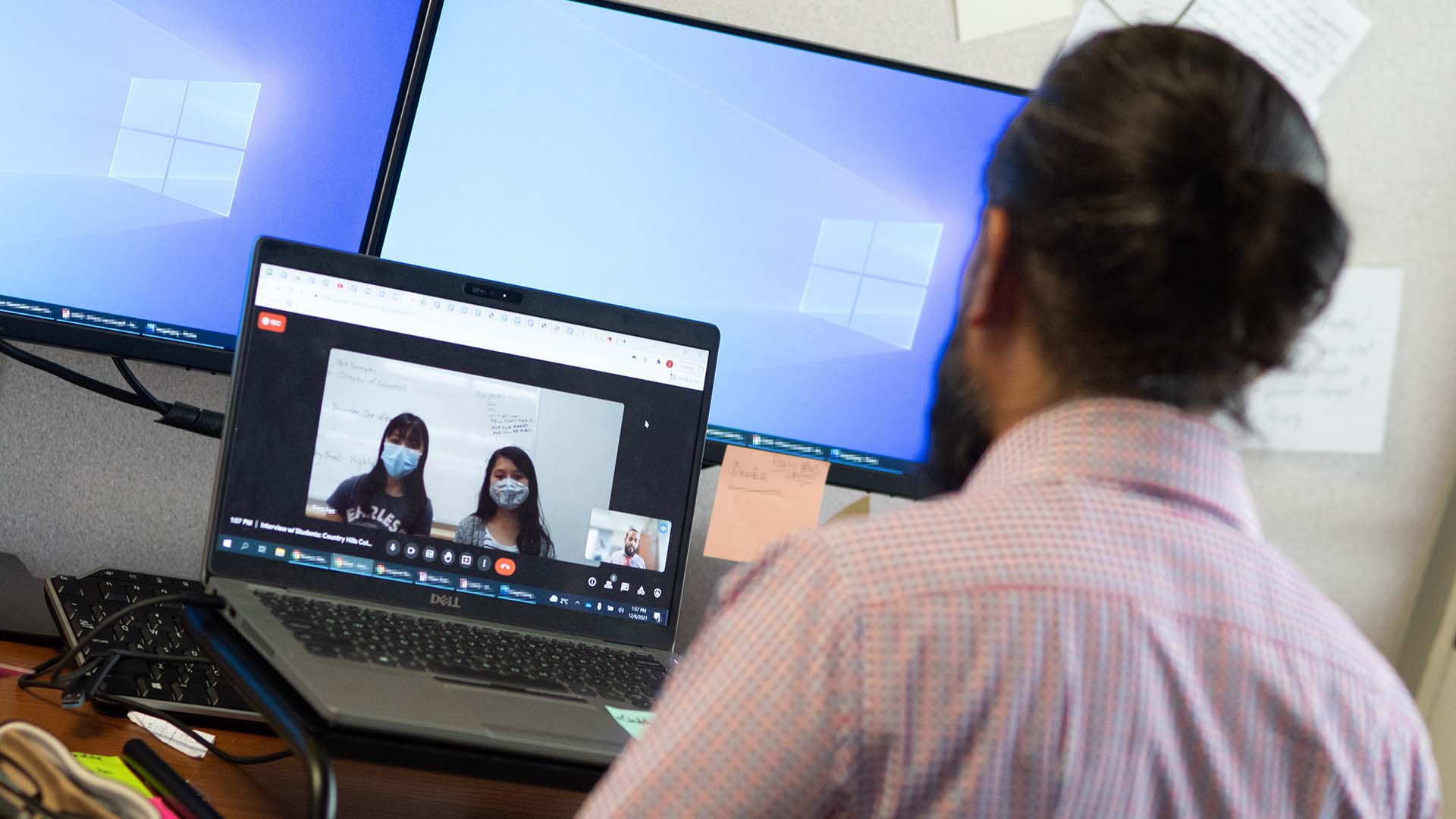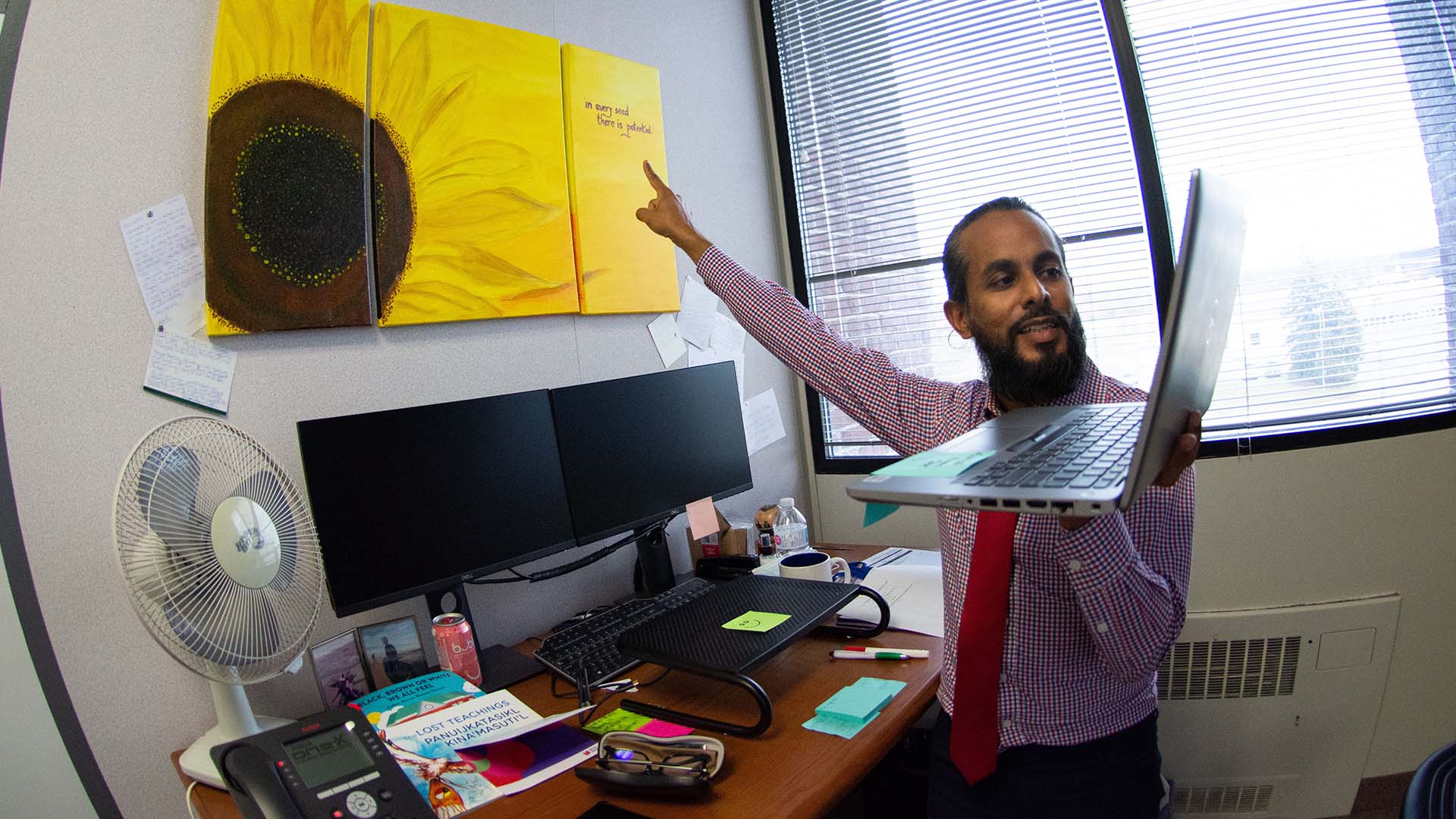
Junior Journalists and jeewan: Listening and Learning from Student Voice
It may be his first year as Director of Education with the Waterloo Region District School Board (WRDSB), but a few young and up-and-coming journalists weren’t afraid to bring the tough questions to jeewan chanicka.
In October, Amelia and Vivian, two Grade 6 students from Empire Public School in Waterloo, had the chance to ask the Director of Education their burning questions for an article in their school newspaper. For chanicka, it was an opportunity to hear directly from WRDSB students, about what matters to them.

A question from Vivian stood out in particular, as she asked chanicka what was his “vision for schools and students moving forward and where does [he] see the greatest overall need for change?”
The public education system as it currently exists, chanicka explained, is a system from a different era.
“We’re using infrastructure that is from the 19th century for schools, today, in this century,” he said. “That doesn’t make a lot of sense to me.”
The challenge, for chanicka, is to rethink and change public education to help students reach their fullest potential. A key factor is ensuring that schools are safe for everyone to show up and be their whole selves.
“When that happens, the learning becomes easy,” said chanicka. “People feel appreciated for who they are.”
Continuing to look to the future, Vivian asked chanicka, “If a brand new young teacher were to approach you and ask you what you feel is the most important thing in teaching, what would you tell them?”
As part of preparing students for this world, and their future in it, chanicka sees opportunities for students to focus their learning on answering big questions that are connected to real-world issues.
Learning in this way will better equip students to approach the problems and questions they will face as they enter the working world in the future, and ultimately, shape their own futures, too.
“You’re going to be the leaders,” chanicka told the students.

In December, chanicka was interviewed by Sona and Kayna, two members of the Newspaper Club at Country Hills Public School in Kitchener. List of queries in hand, they dove right in, asking chanicka how he would explain his job to elementary students.
“I work to try and make the best decisions to help the schools be the best schools they can be and to support students to be the best that they can be,” said chanicka.
He helped them understand the size of the WRDSB, and how he envisions his role serving the students that learn and grow in its schools every day. Although some may see him as the boss, chanicka explained that he sees himself working for students.
“We have 122 schools and we serve about 65,000 students,” said chanicka. “I work for all of you. So you are my bosses”
Director chanicka explained he sees an important part of his job to ensure that education meets the needs of all students.
“It helps some, and that’s a good thing,” said chanicka. “But, it hasn’t helped all students.”

This is a focus that lies at the heart of chanicka’s work as director of education at the WRDSB. To help illustrate this purpose, he showed the students a painting he made that hangs above his desk. The image is of a sunflower, accompanied by the text, “in every seed there is potential”.
The path to achieving this involves reimagining our understanding of what an education system looks like, how students learn and where learning can take place. This includes an increased opportunity for student voice and student-directed learning.
Although their conversations were brief, it was clear that they made an impact on all parties involved. For chanicka, he made it clear just how important the opportunity to connect directly with students is.
“I can’t tell you how much I’ve enjoyed talking to all of you,” said chanicka. “This is the highlight of my day.”
